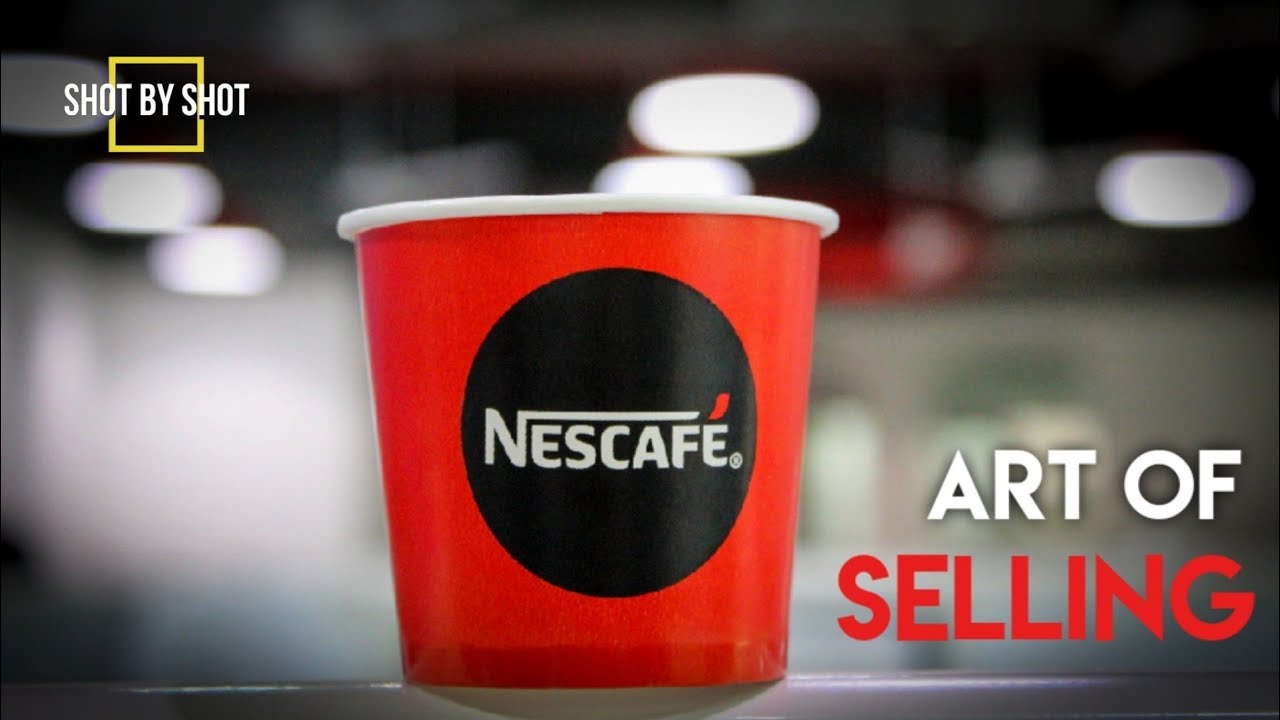- What are the benefits of Effective Marketing Campaigns?
- The Answer to Effective Marketing Campaigns
- Understanding Your Target Audience
- Crafting Compelling Messages
- Choosing the Right Marketing Channels
- An Integrated Approach
- The Power of Effective Marketing Campaigns
- FAQs: Effective Marketing Campaigns
- 1. What is a marketing campaign?
- 2. How do I create an effective marketing campaign?
- 3. Which marketing channels should I use for my campaign?
- 4. How can I measure the success of my marketing campaign?
- 5. How important is audience segmentation in a marketing campaign?
- 6. Should I use paid advertising for my marketing campaign?
- 7. How can I create compelling content for my campaign?
- 8. What role does social media play in a marketing campaign?
- 9. Is email marketing still effective for campaigns?
- 10. How can I optimize my website for my marketing campaign?
- 11. Should I collaborate with influencers for my marketing campaign?
- 12. How long should a marketing campaign run?
- 13. What is the role of data analysis in a marketing campaign?
- 14. Can a small business run effective marketing campaigns on a limited budget?
- 15. How often should I evaluate and adjust my marketing campaign?
Effectivemarketingcampaigns are essential for businesses to not only create brand awareness but also drive sales and increase customer engagement. In today’s ever-evolving digital landscape, having a well-designed marketing strategy is more important than ever before.
Marketingcampaigns have been around for centuries, evolving from simple hand-painted signs to elaborate print advertisements. The concept of marketing campaigns gained significant traction in the early 20th century with the emergence of mass media. This period marked the beginning of advertisers creating strategic, widespread campaigns to target a larger audience.
Fast forward to the digital era, and marketing campaigns have taken on a whole new level of complexity and reach. With the advent of the internet and social media, businesses can now leverage various channels to reach their target audience more effectively. According to a survey by Statista, companies spent over 160 billion U.S. dollars on digital advertising in 2020, reflecting the growing importance of effective marketing campaigns in the digital age.
One key element of successful marketing campaigns is the ability to capture the attention of the target audience. With an average attention span of around 8 seconds, marketers need to utilize visually appealing and engaging content to grab the viewer’s attention within a limited timeframe. In fact, an engaging video ad can increase purchase intent by 97%, emphasizing the importance of captivating content in marketing campaigns.
Furthermore, data analytics and personalization have become integral components of effective marketing campaigns. Leveraging data insights, businesses can tailor their campaigns to suit the specific preferences and behaviors of their target audience. This hyper-personalization not only helps businesses maximize conversion rates but also enhances the overall customer experience.
In conclusion, effective marketing campaigns have evolved significantly over time, from traditional print advertisements to digital strategies that incorporate engaging content and data analytics. With the rise of the digital era and the increasing role of social media, businesses must adapt their marketing strategies to effectively reach their target audience. By capturing attention, personalizing content, and utilizing data-driven insights, businesses can create impactful marketing campaigns that drive results.
| Item | Details |
|---|---|
| Topic | Effective Marketing Campaigns |
| Category | Marketing and Advertising |
| Key takeaway | Effective marketing campaigns are essential for businesses to not only create brand awareness but also drive sales and increase customer engagement. |
| Last updated | December 30, 2025 |
What are the benefits of Effective Marketing Campaigns?
Effective Marketing Campaigns play a crucial role in promoting and boosting a business’s success. These campaigns encompass a series of strategic activities carried out to create awareness, generate leads, and drive conversions. By employing various marketing techniques such as digital advertising, content creation, social media engagement, and data analysis, effective marketing campaigns aim to establish brand visibility, increase customer engagement, and ultimately drive revenue growth. In the following section, we will delve deeper into the key components and strategies behind successful marketing campaigns.
The Answer to Effective Marketing Campaigns
In the competitive world of business, creating effective marketing campaigns is crucial for success. A well-executed marketing campaign can generate leads, increase brand awareness, and drive sales. But what exactly makes a marketing campaign effective?
The key to effective marketing campaigns lies in understanding your target audience and crafting messages that resonate with them. It’s not enough to simply create visually appealing advertisements; you need to deliver the right message to the right people at the right time.
Understanding Your Target Audience
Before launching a marketing campaign, it’s important to conduct thorough market research to gain insights into your target audience. Understanding their needs, preferences, and behaviors will help you tailor your messages and choose the most effective marketing channels.
Segmentation is a powerful strategy that allows you to divide your target audience into smaller, more specific groups. By segmenting your audience based on demographics, interests, or purchase behavior, you can create personalized messages that resonate with each segment.
Crafting Compelling Messages
Once you have a clear understanding of your target audience, it’s time to craft compelling messages that capture their attention. Effective marketing campaigns focus on addressing the pain points of the audience and highlighting the benefits of the product or service being promoted.
Storytelling is a powerful tool in marketing. By creating a narrative that connects with the audience’s emotions and values, you can make your messages memorable and relatable. Use storytelling to showcase how your product or service can solve problems or enhance the lives of your customers.
Choosing the Right Marketing Channels
With so many marketing channels available, it’s crucial to choose the ones that are most effective for reaching your target audience. Consider your audience’s demographics, preferences, and media consumption habits when selecting the marketing channels for your campaign.
Online marketing channels, such as social media platforms, email marketing, and search engine optimization (SEO), have become increasingly important in today’s digital age. However, traditional channels like television, radio, and print advertising may still be relevant depending on your target audience.
An Integrated Approach
Effective marketing campaigns often leverage an integrated approach, utilizing multiple channels and tactics to reinforce the campaign messages. By having a consistent and cohesive brand presence across various touchpoints, you can maximize the impact of your marketing efforts.
Remember to track and analyze the results of your marketing campaigns. Regularly monitor key performance indicators (KPIs) such as click-through rates, conversion rates, and return on investment (ROI). This data will help you optimize your future marketing campaigns and improve their effectiveness.
The Power of Effective Marketing Campaigns
In conclusion, effective marketing campaigns are essential for businesses to thrive in today’s competitive landscape. By understanding your target audience, crafting compelling messages, choosing the right marketing channels, and utilizing an integrated approach, you can create campaigns that resonate with your customers and drive meaningful results.
According to a recent study, businesses that implement effective marketing campaigns experience a 20% increase in sales compared to their competitors.
FAQs: Effective Marketing Campaigns
1. What is a marketing campaign?
A marketing campaign is a strategic effort to promote a product, service, or brand using various marketing channels and tools to achieve specific goals.
2. How do I create an effective marketing campaign?
Creating an effective marketing campaign involves setting clear objectives, identifying your target audience, conducting market research, developing a compelling message, selecting appropriate marketing channels, and measuring your results.
3. Which marketing channels should I use for my campaign?
The choice of marketing channels depends on your target audience and campaign goals. Common channels include social media, email marketing, content marketing, search engine optimization, and paid advertising.
4. How can I measure the success of my marketing campaign?
Measuring the success of a marketing campaign requires defining key performance indicators (KPIs) such as conversion rates, website traffic, social media engagement, and customer feedback. Use analytics tools and tracking mechanisms to monitor these metrics.
5. How important is audience segmentation in a marketing campaign?
Audience segmentation is crucial for a successful marketing campaign. By dividing your target audience into specific groups based on demographics, behaviors, or preferences, you can tailor your message and marketing strategies to resonate with each segment more effectively.
6. Should I use paid advertising for my marketing campaign?
Paid advertising can be an effective component of a marketing campaign, especially if you want to reach a larger audience quickly. Consider your budget, target audience, and campaign objectives when deciding whether to invest in paid ads.
7. How can I create compelling content for my campaign?
To create compelling content, focus on providing value to your audience, addressing their pain points, and using engaging formats such as videos, infographics, or storytelling. Conduct audience research to understand their preferences and needs.
8. What role does social media play in a marketing campaign?
Social media plays a significant role in marketing campaigns as it allows for direct interaction with your audience, increasing brand awareness, driving website traffic, and enabling targeted advertising to specific demographics.
9. Is email marketing still effective for campaigns?
Yes, email marketing can be highly effective when done right. By segmenting your email list, personalizing your messages, and providing valuable content or offers, you can nurture leads, retain customers, and drive conversions.
10. How can I optimize my website for my marketing campaign?
To optimize your website for a marketing campaign, ensure it has clear calls to action, is mobile-friendly, loads quickly, has relevant and optimized content, and is easy to navigate. Consider landing page optimization techniques to maximize conversions.
11. Should I collaborate with influencers for my marketing campaign?
Collaborating with influencers can be beneficial for your marketing campaign, especially if they have a large following and align with your target audience. It can help increase brand visibility, credibility, and reach within their community.
12. How long should a marketing campaign run?
The duration of a marketing campaign varies depending on the goals, budget, and target audience. Some campaigns run for a few weeks, while others may stretch out over several months or even be ongoing.
13. What is the role of data analysis in a marketing campaign?
Data analysis is crucial in a marketing campaign as it provides insights into consumer behavior, campaign performance, and ROI. Analyzing data helps refine strategies, identify trends, and make data-driven decisions to optimize marketing initiatives.
14. Can a small business run effective marketing campaigns on a limited budget?
Yes, small businesses can run effective marketing campaigns on a limited budget. By prioritizing channels that align with the target audience, leveraging social media, creating compelling content, and focusing on specific objectives, small businesses can achieve impactful results.
15. How often should I evaluate and adjust my marketing campaign?
Evaluation and adjustment should be an ongoing process throughout your marketing campaign. Regularly monitor KPIs, analyze data, gather customer feedback, and make necessary adjustments to optimize your campaign for better results.
Conclusion
Effective marketing campaigns are essential for businesses to succeed in today’s competitive market. This article has covered several key points and insights into what makes a marketing campaign successful. Firstly, a well-defined target audience is crucial for any campaign to be effective. By understanding the needs, preferences, and behaviors of the target audience, businesses can tailor their marketing messages and strategies to resonate with them and drive engagement.
Another important factor is creating compelling and relevant content. Consumers today are bombarded with countless advertisements and promotional messages, so it is crucial for businesses to create content that stands out and provides value to the audience. This can be achieved through storytelling, using emotions, or providing useful information or entertainment.











